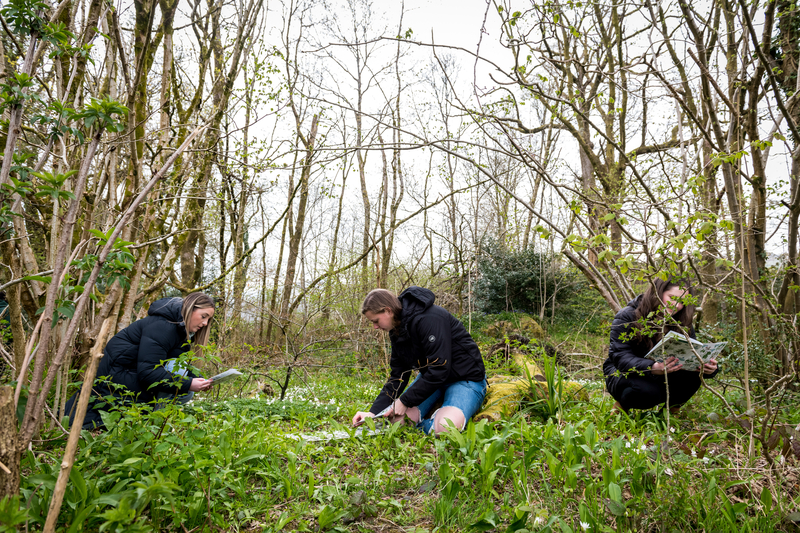BSc (Hons) - Ecology and Wildlife Conservation (With Integrated Foundation Year)
Do you have a passion for wildlife and the natural environment? Do you want to be part of the solution to global challenges such as climate change and biodiversity loss? Then the BSc (Hons) Ecology and Wildlife Conservation programme at the University of Cumbria is the perfect degree programme for you!
Delivered from the heart of the English Lake District, we are the only UK University campus in a UNESCO World Heritage Site and National Park. The programme meets rigorous professional and educational standards to provide you with a unique and exciting university experience, supported by research active lecturers working in the UK and internationally.
We have great facilities to support your hands-on learning, such as dedicated laboratory space, a university-owned woodland, powerboats to explore lake environments and established connections with local partners. Not only do we have these resources to support your time in class, students in Ambleside can also access a range of outdoor, adventure equipment to make the most of the wonderful location in your own time, once you have the appropriate training of course!
Please note: The foundation year for this course is taught at our Carlisle Fusehill Street campus

Course Overview
Climate change and biodiversity loss are increasingly affecting life on Earth and the health and wellbeing of ecosystems and people. The University of Cumbria’s BSc (Hons) in Ecology and Wildlife Conservation equips you, the workforce of the future, with the knowledge and skills needed to address the pressing environmental challenges facing society and global ecosystems.
The programme will support you to develop the knowledge, understanding, practical experience, digital and transferable skills needed for a successful career in the rapidly growing environmental industry and other areas of graduate employment. You will learn about fundamental ecology and the processes that drive global systems which affect all forms of life on Earth and the science that underpins wildlife conservation efforts worldwide.
On this course you will...
- Develop in-depth knowledge and understanding of ecology and wildlife conservation to prepare you for a rewarding career in the environmental sector.
- Enjoy living and studying in our friendly and welcoming community amid one of the most beautiful and inspiring parts of the UK.
- Our internationally recognised research active staff bring cutting edge knowledge and partner perspectives to provide an exceptional, personalised university experience; informed by professional ecological standards and practices.
- The programme is designed to meet environmental professional standards (set out by CIEEM), and includes over 180 hours of high-quality practical activity in the field and laboratory.
- Opportunities to engage in professional development activity through volunteering, internships and sandwich placements with our extensive network of partnership organisations nationally and internationally.
- Great employment prospects – overall, 97.3% of UoC graduates are in employment or further study 15 months after graduation, ranking us 12th nationally (HESA, 2023).
Location
Ambleside Campus
Nestled in the Lake District National Park, a UNESCO World Heritage site, the Ambleside campus is the perfect place for world-savers, animal lovers, and adventurers. There is never a dull moment when surrounded by such natural beauty and opportunity.
Find out more
Find out more about studying with us
Attend an Open Day at Cumbria
An Open Day is your opportunity to explore one of 5 campuses, meet your lecturers, and find out how the University of Cumbria could become your new home.





